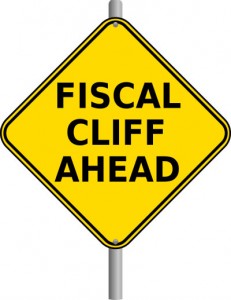 Many experts have voiced that implications of the fiscal cliff will lead to changes in homeownership tax provisions and a recession. Troy Stavros, Broker and Partner with the 865 Real Estate team stated, “Although the recovering housing market has made strides towards normalcy this year, these implications will likely undo gains made in one of the economy’s most important sectors.”
Many experts have voiced that implications of the fiscal cliff will lead to changes in homeownership tax provisions and a recession. Troy Stavros, Broker and Partner with the 865 Real Estate team stated, “Although the recovering housing market has made strides towards normalcy this year, these implications will likely undo gains made in one of the economy’s most important sectors.”
Let’s take a closer look at the tax provisions and changes that could lead us to a recession, and look at how they may effect Knoxville real estate.
#1: Mortgage Interest Deduction: This is the largest and oldest housing related subsidy in the U.S. tax code, that “allows homeowners to reduce their taxable income by the amount of interest that has been paid towards their mortgage.” This deduction costs the government about $100 billion each year and has been a focal point of tax code negotiations. Some changes being discussed are: capping the deduction, limiting the number of eligible taxpayers, or eliminating the tax benefit altogether. Changes would not only have an immediate effect on a homeowner’s cash flow, but an immediate negative effect psychologically. Moody’s Chief Economist Mark Zandi state, “The deduction nevertheless has become ingrained in the psyche of home buyers over generations, and reducing it would have real effects. People account for it when they think about how much house they can afford to buy.” Changing the mortgage interest deduction will result in weakening the housing sector.
#2: Mortgage Debt Relief Act of 2007: Passed by Congress at the beginning of the housing crisis, the Mortgage Debt Relief Act shields forgiven mortgage debt from taxable income and is set to expire at the end of 2012. This protection can appear in three scenarios: “when a bank modifies a mortgage to reduce the principal; when a borrower sells her home in a short sale and the purchase price is less than the outstanding balance on the mortgage; and when a bank waives the portion of the mortgage balance it couldn’t recoup in a foreclosure.” Advocates state that allowing the tax break to expire will endanger progress made this year with troubled mortgages.
What will a recession caused by the fiscal cliff do to Knoxville real estate?
#1: Reduce Home Sales: Higher taxes will leave potential homebuyers with less available money to spend on real estate, increasing fears that the housing recovery will be reversed. But if the fiscal cliff brings the U.S. economy back into a recession, higher unemployment and lower wages will have the most profound impact on new home sales. According to the Chief Economist at National Association of Realtors (NAR), Lawrence Yun notes, “Home sales and construction activity depend on steady job growth, which we are seeing, but thus far we’ve only regained half of the jobs lost during the recession.”
#2: More Foreclosures: Another major impact of higher unemployment onset by a recession could be an influx in foreclosures. Forbes noted, “fewer jobs could translate into less demand for new homes, possibly even a wave of foreclosure filings as newly unemployed workers struggle to make mortgage payments.” The CBO reported that an inability to avoid the fiscal cliff could cost Americans 2 million jobs in 2013 and keep unemployment around 8.0% through 2014. Allowing the Mortgage Debt Relief Act to expire may compound the issue. Homeowners who are selling homes through short sales – purchasing a home for less than is owed on the existing mortgage – may choose to foreclosure on homes rather than be taxed on the unpaid portion of their mortgage. Ultimately, more foreclosures will have a negative effect on the housing market by bringing down home values.
#3: Rental Prices Move Higher: Low interest rates and low home prices have resulted in making Knoxville homes more affordable, but strict mortgage credit requirements have slowed the growth in homeownership. Ben Bernanke, Federal Reserve Chairman, stated “overly tight lending standards may now be preventing creditworthy borrowers from buying homes, thereby slowing the revival in housing and impeding the economic recovery.” Because of this, more potential Knoxville home buyers will continue to stay in the rental market, especially if the country goes into a recession. But rental supply cannot keep pace with the demand. Rents climbed more than 4.0% in 2012 and NAR estimates that number will continue to increase by at least 4.0% through 2015. A report from the Center for American Progress states, “there could be as many as 2.3 million new renters between 2015 and 2020. The result will be an increasingly tighter rental markets and higher rents for many Americans.”
There are big decisions ahead that may ultimately result in big implications for Knoxville real estate. Stay tuned!